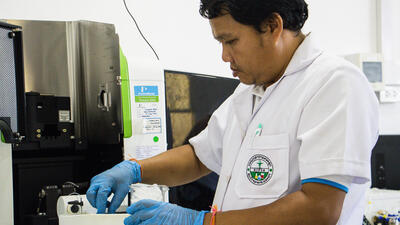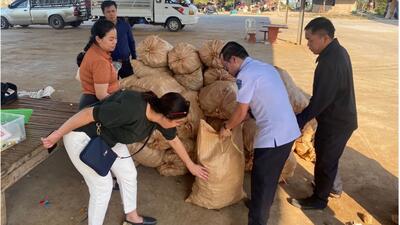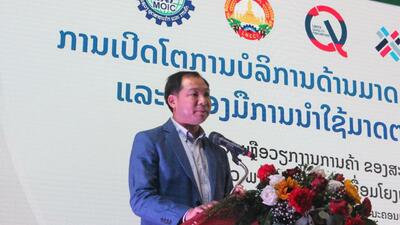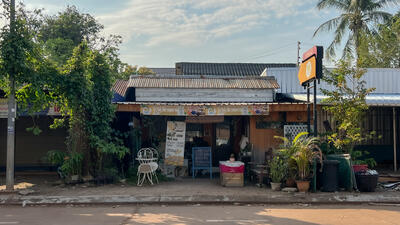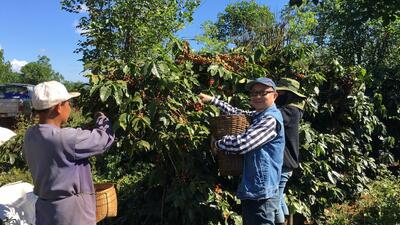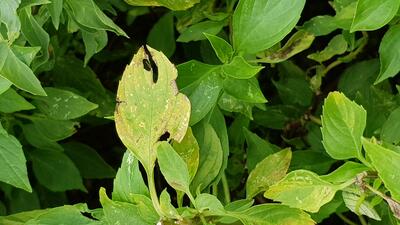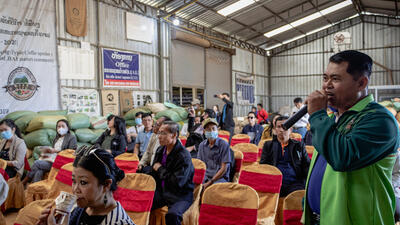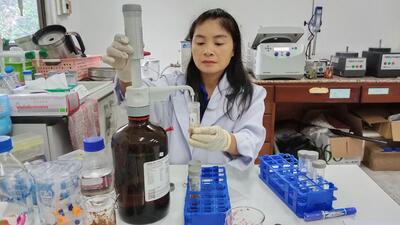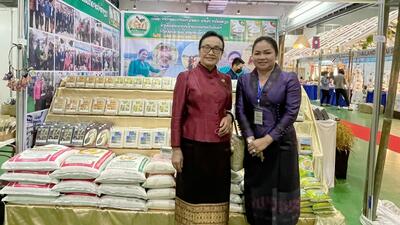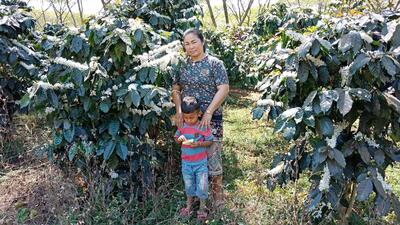European Union and ITC team up with Lao People’s Democratic Republic to improve food-safety, boost exports
A new project to improve food safety and plant health through better governance in the Lao People’s Democratic Republic is underway after being launched in Vientiane by the European Union, the Ministry of Agriculture and Forestry (MAF) and the International Trade Centre (ITC).
The Systematic Mechanism for Safer Trade (SYMST) project will focus on developing a model of export “value chains” for selected products and provinces, and target markets. ITC will implement it in partnership with MAF’s Department of Agriculture and its provincial offices.
The goal is for the project to provide skills and knowledge needed for participating companies to improve their market-access opportunities. It will also help build business links between farmers and exporters, and help increase interest from international buyers.
Technical support will be provided to, among others, watermelon farmers in Luang Namtha for export to China, rice producers in Vientiane and chilli and basil producers from Pakxe, Champak region, for export to the EU.
'This project will improve food safety and strengthen the regulatory framework for the control of plant health and pesticide residues in fruits and vegetables,' MAF Vice Minister Bounkhouang Khambounhueng said.
Leo Faber, Ambassador of the European Union to the Lao PDR, added: ‘The SYMST project will complement our trade-related assistance programme in Laos – ARISE Plus – as we consider that a solid regulatory framework to control plant health and pesticides in the fruits and vegetable sectors is a prerequisite for the integration of the Laos economy into global production chains, and increased access to foreign markets.’
Xuejun Jiang, Chief of ITC’s Office for Asia and the Pacific, said: ‘ITC has been expanding its collaboration in Lao PDR and the SYMST project is uniquely positioned to foster a pilot model for safe trade in one of the major employment sectors in the country.’
Following the launch, the project's partners will carry out a series of activities to help the country comply with international and regional standards related to control of pesticides and plant health. This sector is highly regulated, especially in the EU.
A range of stakeholder representatives from government bodies and associations met on 28 January before the SYMST launch during which participants discussed:
• identification phase findings
• proposed project activities
• how to guide implementation at the technical level with field demonstrations
Following the SYMST launch on 29 January, the 1st Project Review Committee meeting, chaired by the representatives of the Delegation of the European Union for the Lao Peoples’ Democratic Republic and the Department of Agriculture, took place and members gave strategic guidance on the implementation of the project. A small working group meeting then took place where province focal points and private sector representatives expressed their full support and interest in the project activities.
The SYMST Project will also contribute to establishing a coordination and cooperation mechanism to enable actors along the supply chain to take actions on trade-related issues on food safety and plant health.
ITC has been active in Lao PDR for more than 15 years. It is currently implementing three other projects in the country, all targeting the improvement of export capacities of Laotian small and medium-sized enterprises.
About the SYMST Project
The Systematic Mechanism for Safer Trade (SYMST) Project aims to improve food safety through better governance in Lao PDR. The project aims to strengthen the regulatory framework for control of plant health and pesticides in the fruits and vegetable sector and other plant products (for example rice) through the application of norms and standards and improve regional and European Union market access.
The Lao PDR component of the project will support the development of a systematic approach to assist the government and private sector stakeholders to identify, prioritize and address problems related to compliance with regulatory measures on plant health and pesticides, for agro products that have significant potential for export to EU, ASEAN and China markets.
The project’s focal point and main coordinating body is the Department of Agriculture under the Ministry of Agriculture and Forestry (MAF).
About ITC - The International Trade Centre is the joint agency of the World Trade Organization and the United Nations. ITC assists small and medium-sized enterprises in developing and transition economies to become more competitive in global markets, thereby contributing to sustainable economic development within the frameworks of the Aid-for-Trade agenda and the United Nations’ Sustainable Development Goals.
For more information, visit www.intracen.org. Follow ITC on Twitter | Facebook | LinkedIn | Instagram
Contact
Ludovica Ghizzoni, ITC Adviser Export Quality Management, ghizzoni [at] intracen.org (ghizzoni[at]intracen[dot]org)
Thavonsouk Souphaphone, EUD LAO PRD, Souphaphone.THAVONSOUK [at] eeas.europa.eu (Souphaphone[dot]THAVONSOUK[at]eeas[dot]europa[dot]eu)
Dr. Soulaphone Inthavong, Deputy Director General, DOA, suinthavong [at] yahoo.com (suinthavong[at]yahoo[dot]com)





